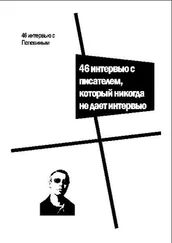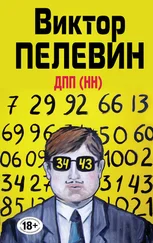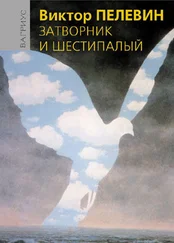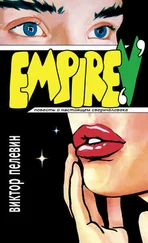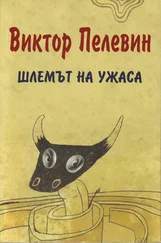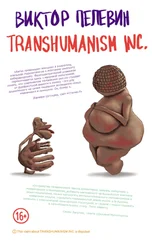Виктор Пелевин - Buddha's Little Finger
Здесь есть возможность читать онлайн «Виктор Пелевин - Buddha's Little Finger» весь текст электронной книги совершенно бесплатно (целиком полную версию без сокращений). В некоторых случаях можно слушать аудио, скачать через торрент в формате fb2 и присутствует краткое содержание. Жанр: Современная проза, на английском языке. Описание произведения, (предисловие) а так же отзывы посетителей доступны на портале библиотеки ЛибКат.
- Название:Buddha's Little Finger
- Автор:
- Жанр:
- Год:неизвестен
- ISBN:нет данных
- Рейтинг книги:5 / 5. Голосов: 1
-
Избранное:Добавить в избранное
- Отзывы:
-
Ваша оценка:
- 100
- 1
- 2
- 3
- 4
- 5
Buddha's Little Finger: краткое содержание, описание и аннотация
Предлагаем к чтению аннотацию, описание, краткое содержание или предисловие (зависит от того, что написал сам автор книги «Buddha's Little Finger»). Если вы не нашли необходимую информацию о книге — напишите в комментариях, мы постараемся отыскать её.
Buddha's Little Finger — читать онлайн бесплатно полную книгу (весь текст) целиком
Ниже представлен текст книги, разбитый по страницам. Система сохранения места последней прочитанной страницы, позволяет с удобством читать онлайн бесплатно книгу «Buddha's Little Finger», без необходимости каждый раз заново искать на чём Вы остановились. Поставьте закладку, и сможете в любой момент перейти на страницу, на которой закончили чтение.
Интервал:
Закладка:
‘A horse with two pricks is nothing compared to what we have next. Your attention please for Private Straminsky, who can pronounce the words of the Russian language with his arse, and who worked in a circus prior to the liberation of the people. He talks quietly, so please keep quiet - and no laughing.’
A bald young man wearing spectacles appeared on the stage. I was surprised to note that, in contrast with the majority of Furmanov’s people, his features were cultured, without a trace of bestiality. He belonged to the frequently encountered type of the eternal optimist, with a face creased by frequent grimaces of suffering. He gestured for a stool, then leaned down and supported himself on it with his hands, with his side to the audience and his face turned towards them.
‘Great Nostradamus,’ he said, ‘tell me, do, how long will the bloody hydra of the foe continue to resist the Red Army?’
I wondered what the name Nostradamus could mean for them - perhaps some mighty hero bestriding the dark annals of proletarian mythology? The invisible Nostradamus replied:
‘Not long.’
‘And why does the bloody hydra continue to resist?’ asked the mouth.
‘The Entente.’ replied its invisible interlocutor.
During the replies the lips of the man on the stage did not move at all, but he performed rapid movements with his protruding backside. The conversation was about politics and the health of the leaders - there were rumours that Lenin was in hospital again with heart problems, and only the captain of his guard was allowed to see him; the hall fell into an entranced silence.
I immediately realized how it was done. A long time before, in Florence, I had seen a street ventriloquist who had summoned up the spirit of Dante. The performance of the man on stage was something of the same kind, with the exception that the answers given by the ‘spirit’ obliged one to assume that Nostradamus had been the very first Marxist in Europe. It was obvious that the performer was a ventriloquist from the peculiar timbre of the replies - low, breathy and rather indistinct. The only thing that was not clear was why he needed to convince the weavers that he was uttering the sounds through his backside.
This was a genuinely interesting question. At first I thought it might be impossible to show the Red weavers a conversation with a spirit because, according to their view of the world, spirits did not exist. But then I was suddenly struck by another explanation, and I suddenly realized that the answer lay elsewhere. The performer had instinctively understood that only something thoroughly bawdy was capable of arousing lively interest from his audience. In this regard his skill in itself was entirely neutral - as far as I understood it, ventriloquists do not even speak with their bellies, they simply pronounce the sounds of speech without opening their lips - and therefore he had to present his act as something repulsively indecent.
Oh, how I regretted at that moment that I did not have one of the St Petersburg symbolists there with me. Could one ever possibly find a symbol deeper than this - or, perhaps I should say, wider? Such will be the fate, I thought with bitterness, of all the arts in this dead-end tunnel into which we are being dragged by the locomotive of history. If even a fairground ventriloquist has to resort to such cheap tricks to maintain his audience’s interest, then what can possibly lie ahead for the art of poetry? There will be no place at all left for it in the new world - or rather, there will, but poems will only be considered interesting if it is known on the basis of sound documentary evidence that their author has two pricks, or at the very least, that he is capable of reciting them through his arse. Why, I asked myself, why does any social cataclysm in this world always result in the most ignorant scum rising to the top and forcing everyone else to live in accordance with its own base and conspiratorially defined laws?
In the meanwhile, the ventriloquist forecast the imminent demise of the kingdom of capital, then recited a weary, worn-out joke which no one in the audience understood, before issuing in farewell several protracted sounds of a vulgar physiological nature, which were greeted by the audience with enthusiastic laughter.
The master of ceremonies appeared again and announced my entrance. I ascended the sagging wooden steps, assumed my stance at the edge of the stage and gazed out without speaking at the assembled public. It was a far from pretty sight. It sometimes happens that the glass eyes of a stuffed wild boar project the semblance of some expression, some feeling which might have been expressed if the animal had been alive; the impression is in turn fleshed out by the mind of the observer. Some similar effect seemed to be in evidence here, except in reverse; although the multitude of eyes staring at me were actually alive and I seemed to understand the feeling reflected in them, I knew that they did not express to even the very slightest degree what I was imagining. In reality I would never be able to decode the meaning that glittered in them; indeed, it was probably not worth the effort.
Not everyone was looking at me. Furmanov was engaged in conversation about something with his two aides-de-camp - in their case the etymology of the term ‘aides’ could be traced back, beyond the slightest possible doubt, to the word ‘hades’. I noticed Anna sitting in one of the most distant rows. She was chewing on a straw with a smile of contempt on her face. I do not think the smile was intended for me, she was not even looking at the stage; she was wearing the same black velvet dress she had worn a couple of hours before.
I set one foot in front of the other and folded my arms on my chest, but carried on standing there in silence, gazing at some point in the gangway. Soon the audience began murmuring restlessly, and in a few seconds the murmur had swollen to a rather loud rumble, providing a muted background for the more distinct sounds of whistles and hoots. Then, in a deliberately quiet voice, I began to speak:
‘Gentlemen, I feel I must beg your forgiveness for making use of my mouth in order to address you, but I have had neither the time nor the opportunity to master the accepted modes of intercourse here
Nobody heard the first words I spoke, but by the end of this phrase the noise had dropped so noticeably that I could distinguish the buzzing of the multitudinous flies circling above my audience.
‘Comrade Furmanov has asked me to recite some poetry for you, something revolutionary.’ I continued. ‘As a commissar, there is one comment I would like to make in this regard. Comrade Lenin has warned us against excessive enthusiasm for experimentation in the field of form. I trust that the artist who preceded me will not take offence - yes, yes, you, comrade, the one who spoke through your arse. Lenin has taught us that art is made revolutionary, not by its unusual external appearance, but by the profound inner inspiration of the proletarian idea. And by way of an example I shall recite for you a poem which speaks of the life of various princes and counts, but which is, nonetheless, a very clear example of proletarian poetry.’
Silence had established its total and undisputed reign over the seated rows of the public. As though saluting some invisible Caesar, I raised my hand above my head, and in my usual manner, using no intonation whatsoever but merely punctuating the quatrains with short pauses, I recited:
Princess Mescherskaya possessed a classy number, a fine little
Tight fitting velvet dress, black as the Spanish night.
She wore it to receive a friend newly back from the capital,
Who shook and trembled and fled from the sight.
How very wearisome, the princess thought, oh what a painful bore,
I’ll go and play some Brahms now, why should I care less?
Meanwhile her visitor concealed his naked self behind the portiere,
A bagel painted black a-trembling in his passionate caress.
This story will seem no more than a joke
To little children who will never guess
How bloodsuckers exploited common folk,
Oppressed the peasants and the working class.
But now each working man can wear a bagel
As bold as any count was ever able.
Интервал:
Закладка:
Похожие книги на «Buddha's Little Finger»
Представляем Вашему вниманию похожие книги на «Buddha's Little Finger» списком для выбора. Мы отобрали схожую по названию и смыслу литературу в надежде предоставить читателям больше вариантов отыскать новые, интересные, ещё непрочитанные произведения.
Обсуждение, отзывы о книге «Buddha's Little Finger» и просто собственные мнения читателей. Оставьте ваши комментарии, напишите, что Вы думаете о произведении, его смысле или главных героях. Укажите что конкретно понравилось, а что нет, и почему Вы так считаете.

